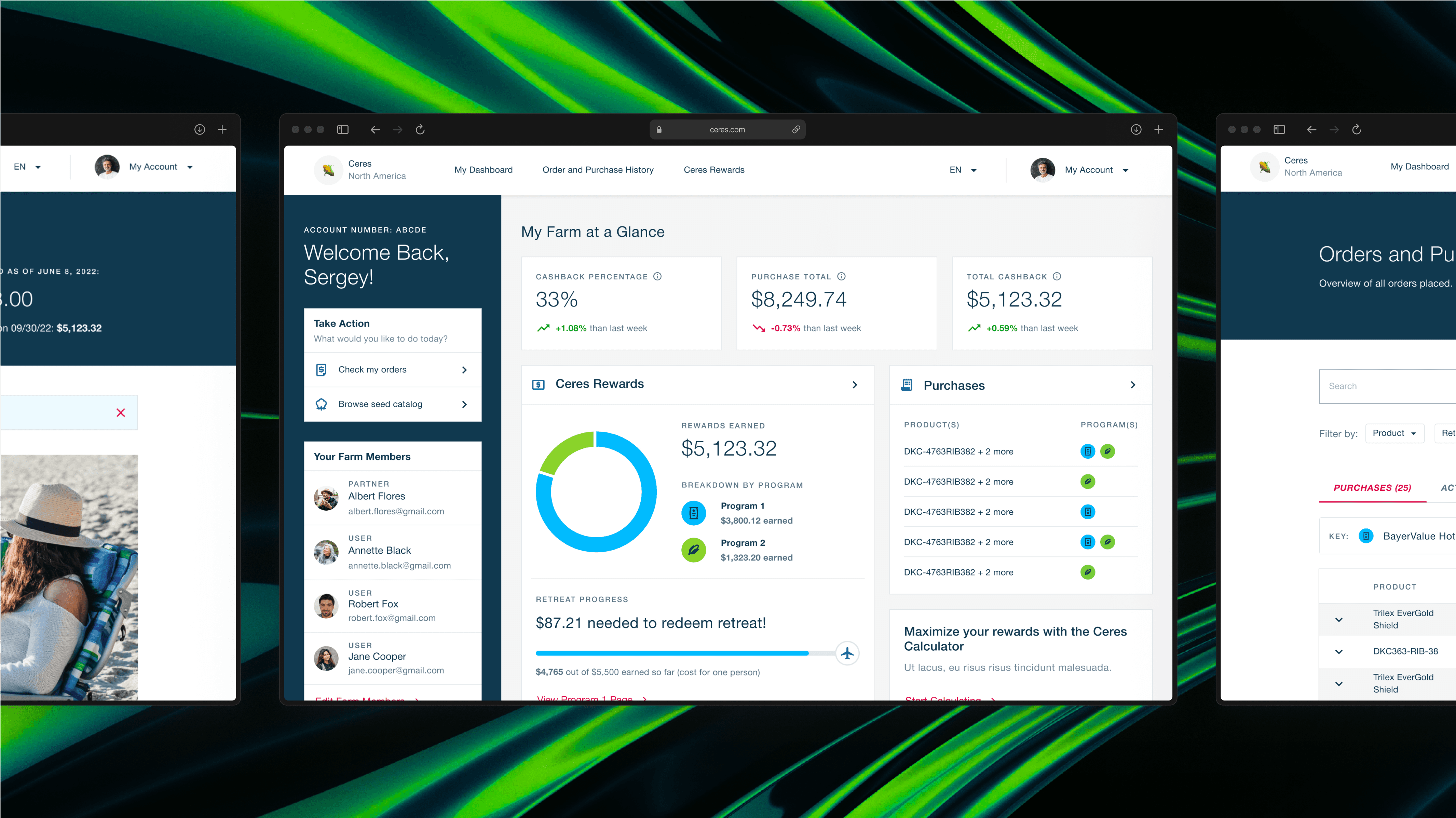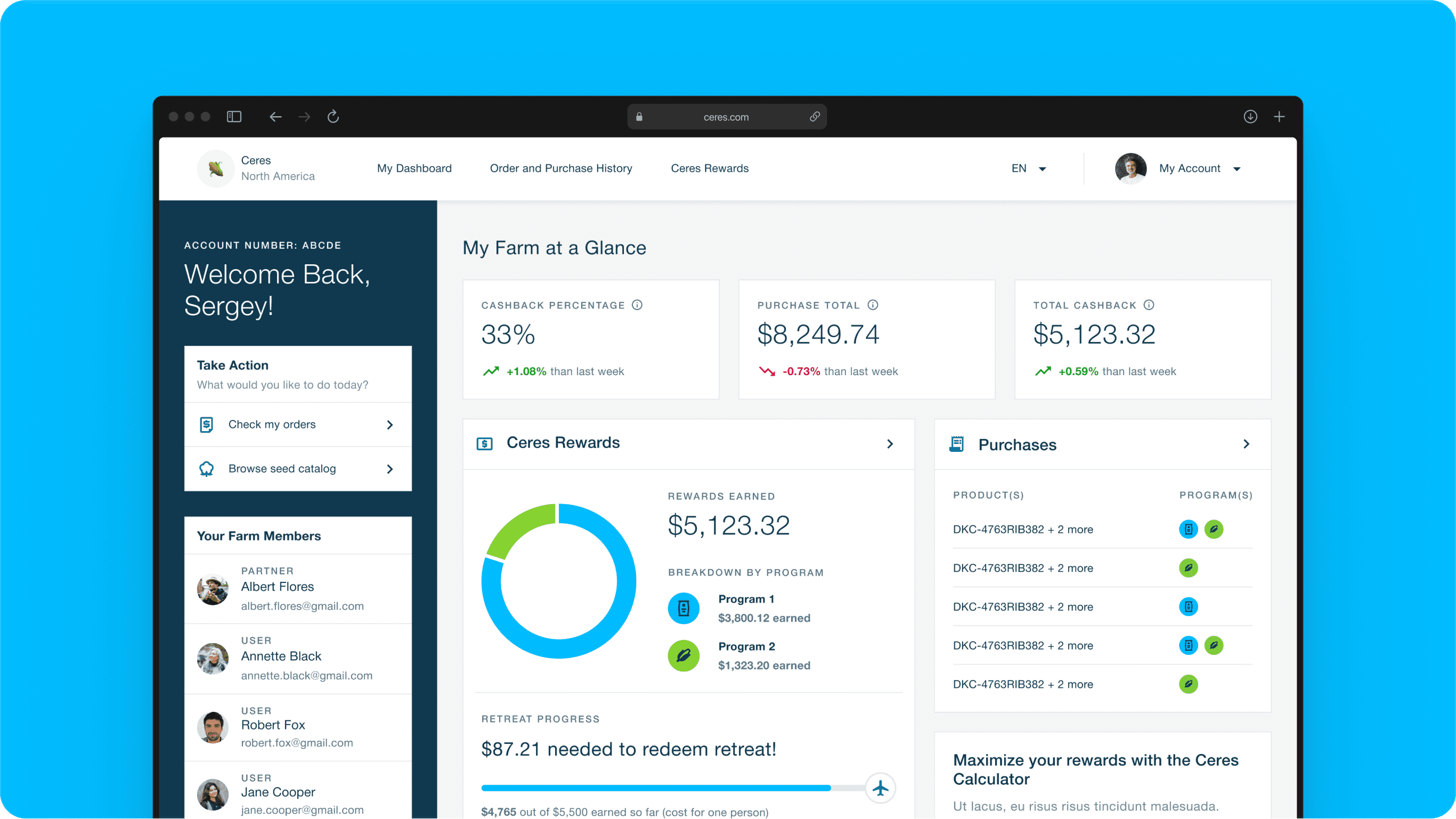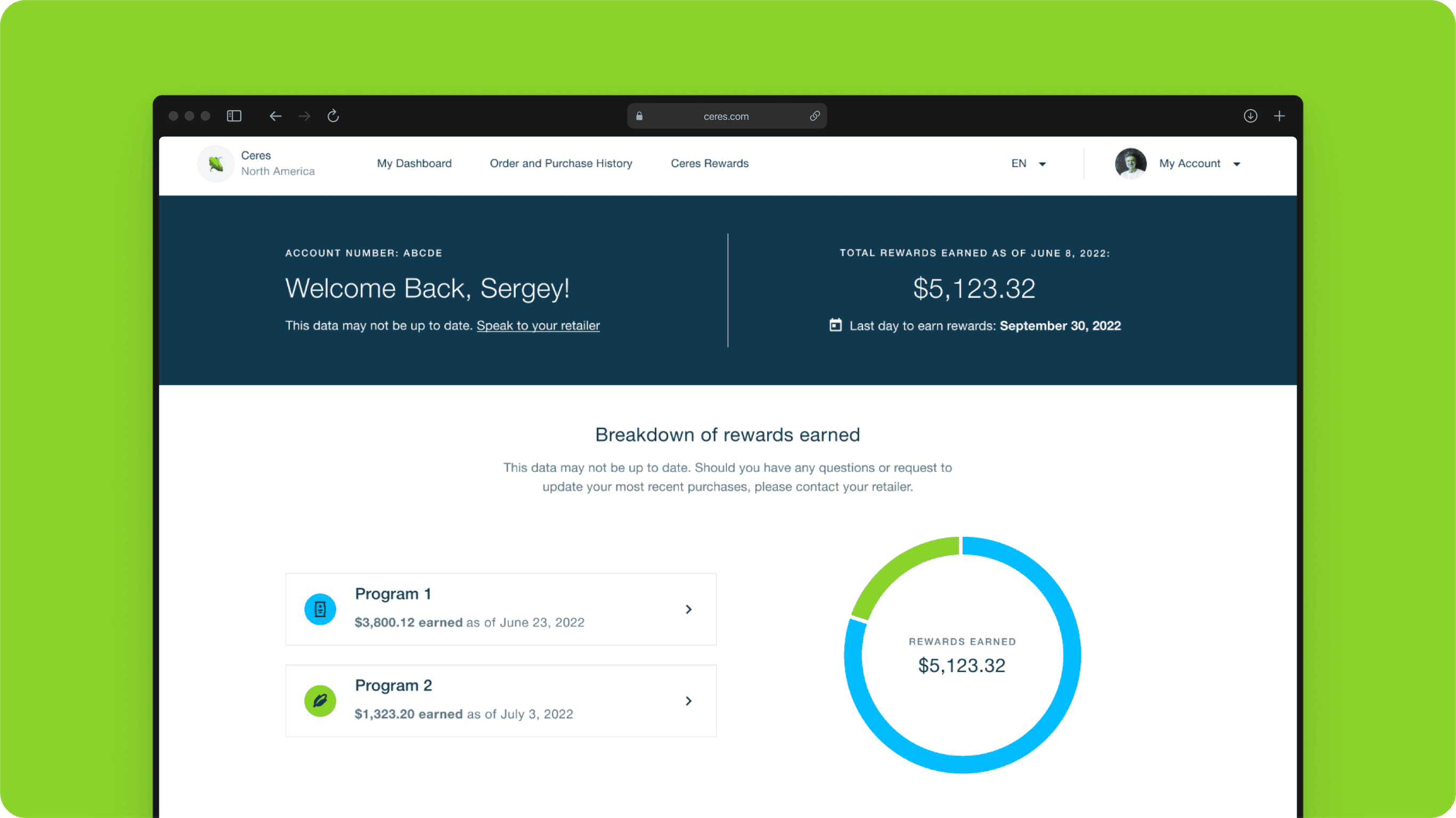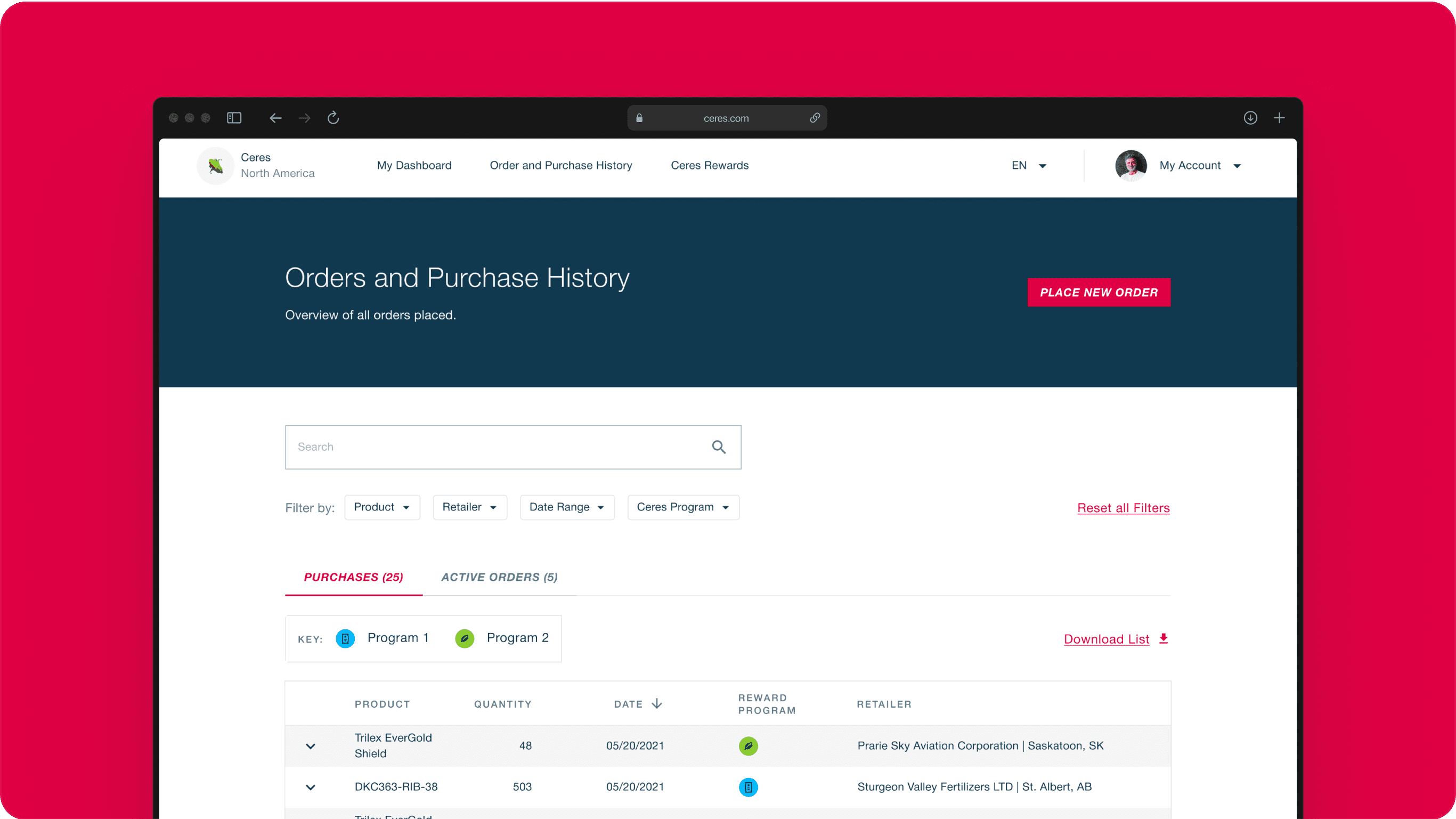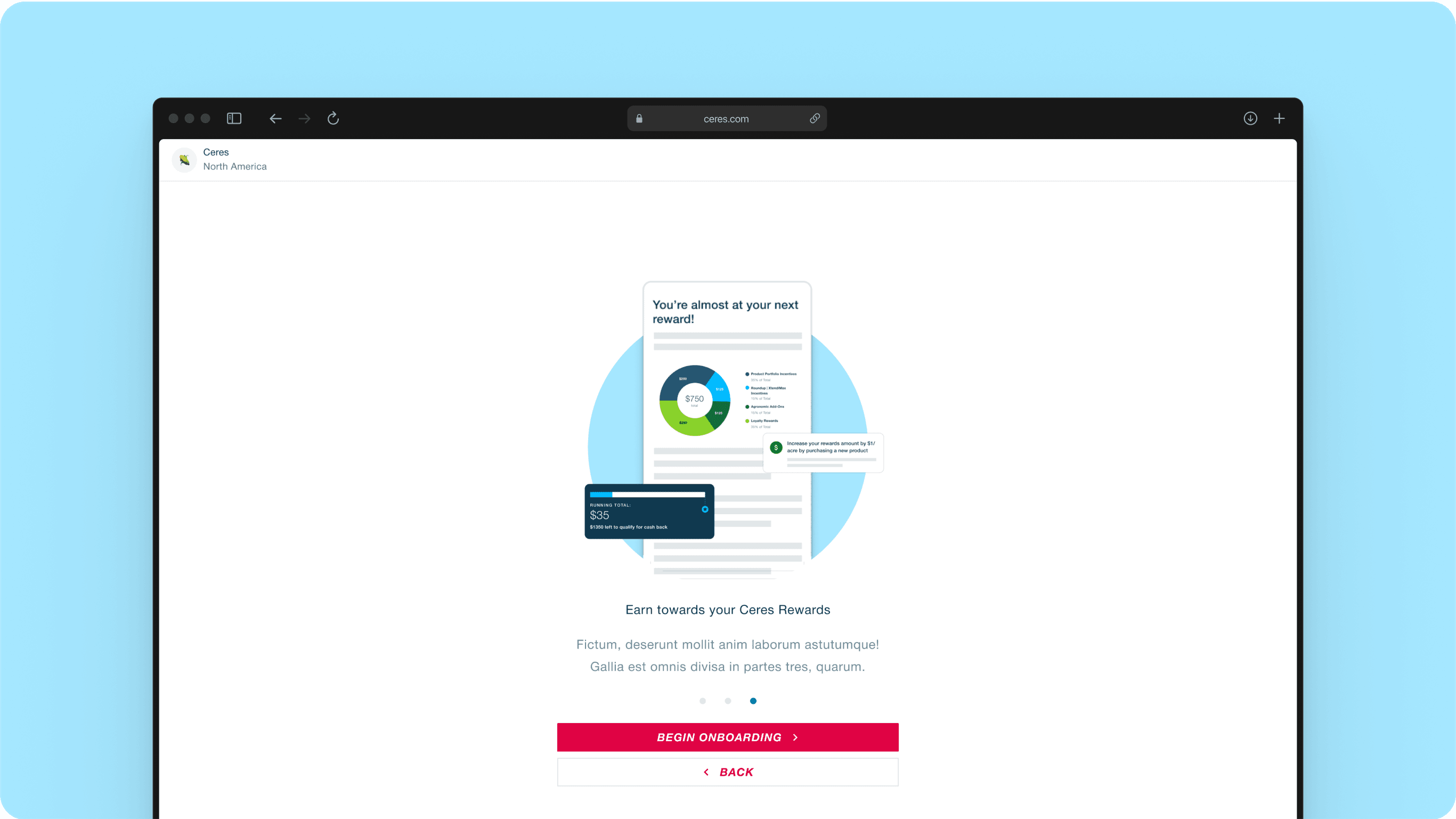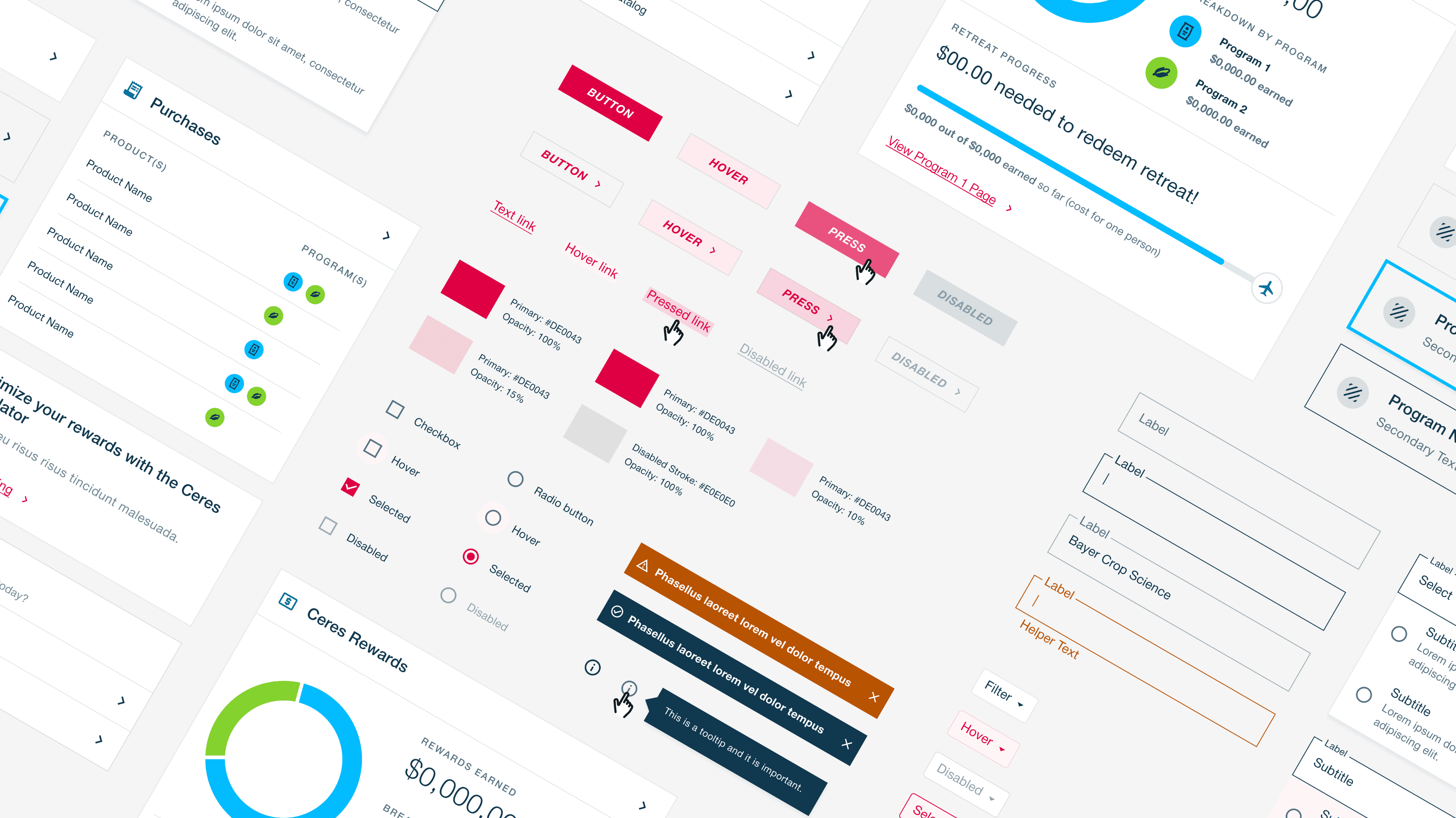OVERVIEW
MY ROLE
Designing the end-to-end post-authenticated experience, working closely with strategy and engineering, and crafting an atomic design system
MY TEAM
2 product designers, 1 product manager, 1 consultant, 4 engineers
TIMELINE
June 2022 - Present (Expected to launch in 2023)
PROBLEM STATEMENT
CONSTRAINTS
🪴 Product familiarity and consistency
The client has a variety of products in the market that farmers currently use. We had to follow similar design patterns to avoid confusion and ensure brand consistency. This impacted some of the overall design decisions.
⚙️ Working with Data Inaccuracy
The majority of the portal displays insights generated by data the client’s existing CRM. With potential problems with data inaccuracy, we had to ensure our design also collects new accurate data while displaying the core insights.
RESULT
An authenticated portal that consolidates all user data into one view
This portal includes a customizable dashboard, online order placement, reward program, product recommendations based on their portfolio, and farm management.
This digital solution fills the massive gap in the current agriculture industry by offering personalized data and tools to over 50,000 North American farmers to help manage their farm management operations.
Customizable Dashboard
Farmers have access to their own dashboard which consolidates all their data into one view. This includes monthly financial statistics, personalized farm widgets, purchase history, reward program breakdown, product recommendations, and team and retailer management.
Farmers value transparency and data accuracy. Widgets help with data scannability while providing key updates on their overall farm.
Rewards Program
With farmers spending millions of dollars on products and crop protectants, a tracking experience allowed users to view reward breakdowns to stay updated on their cash back progress.
This also allowed us to promote other products and rewards programs to farmers.
Orders and Purchase History
Farmers can look at a more detailed breakdown of their past orders and purchases.
A robust searching and filtering experience was implemented to ensure information can be found fast while sustaining readability and scalability of the design.
Onboarding
To curate a dashboard, the farmer needs to connect to their third-party accounts and provide details on their farm, portfolio, and preferred retailers, which allows us to help the farmer digitize more of their operations while providing a more personal experience.
The onboarding process was divided into sections to prevent the user from getting overwhelmed.
DESIGN SYSTEM
Building a system that scales
With the portal also being connected to the primary marketing site, it was important to consider scalability, consistency and efficiency when designing. Our team took an atomic design system approach when we created atoms, molecules, organisms, and templates to help both designers and developers design and build more effectively. The creation of a design system also helped with the design handoff to the engineering team as it provided clear parameters and design constraints.
KEY TAKEAWAYS
👨🌾 Empathizing with an unique user base
My team and I knew nothing about farming or the agriculture industry. Through multiple interviews with the client, farmers, and agronomists, we were able to put ourselves in their shoes and learn how to design in an entirely different industry.
🧱 Using Systems Design Thinking
Through building the portal design system from scratch, I learnt how to focus on scalability and efficiently build components for other designers to use and developers to reference. I had to understand multiple use cases for each component and set constraints to avoid inconsistencies.
Thanks for Reading! Check out some of my other projects
For more work inquiries, or just want to hangout? Send me over a message, and let's chat
